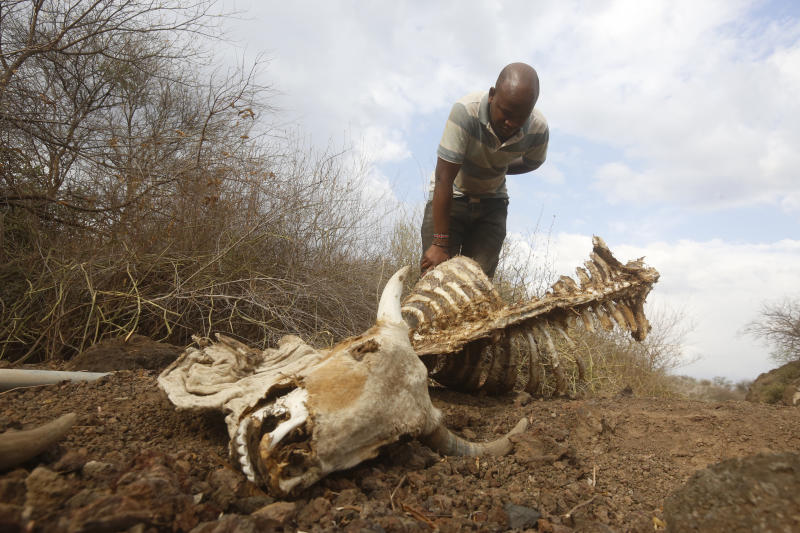KTN News reporter Ibrahim Karanja inspected a cow's carcass which died due to the ravaging drought at Naudo in Tiaty, Baringo County on March 17, 2022. [Kipsang Joseph, Standard]
×
The Standard e-Paper
Home To Bold Columnists

KTN News reporter Ibrahim Karanja inspected a cow's carcass which died due to the ravaging drought at Naudo in Tiaty, Baringo County on March 17, 2022. [Kipsang Joseph, Standard]
Agriculture declined by 0.2 per cent last year, the only sector that did not record growth as Kenya’s economy rebounded to grow at 7.5 per cent, according to the Economic Survey 2022.







